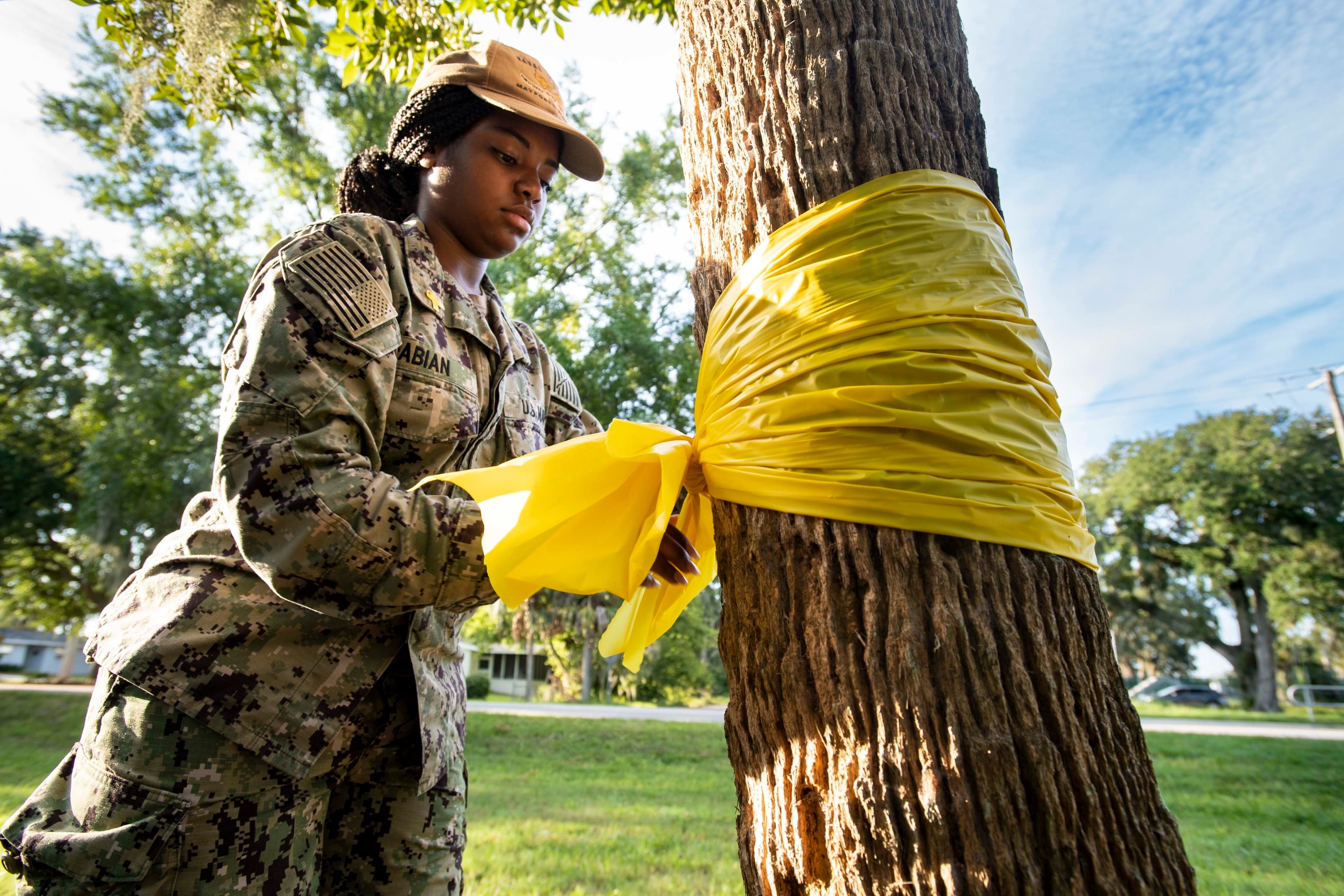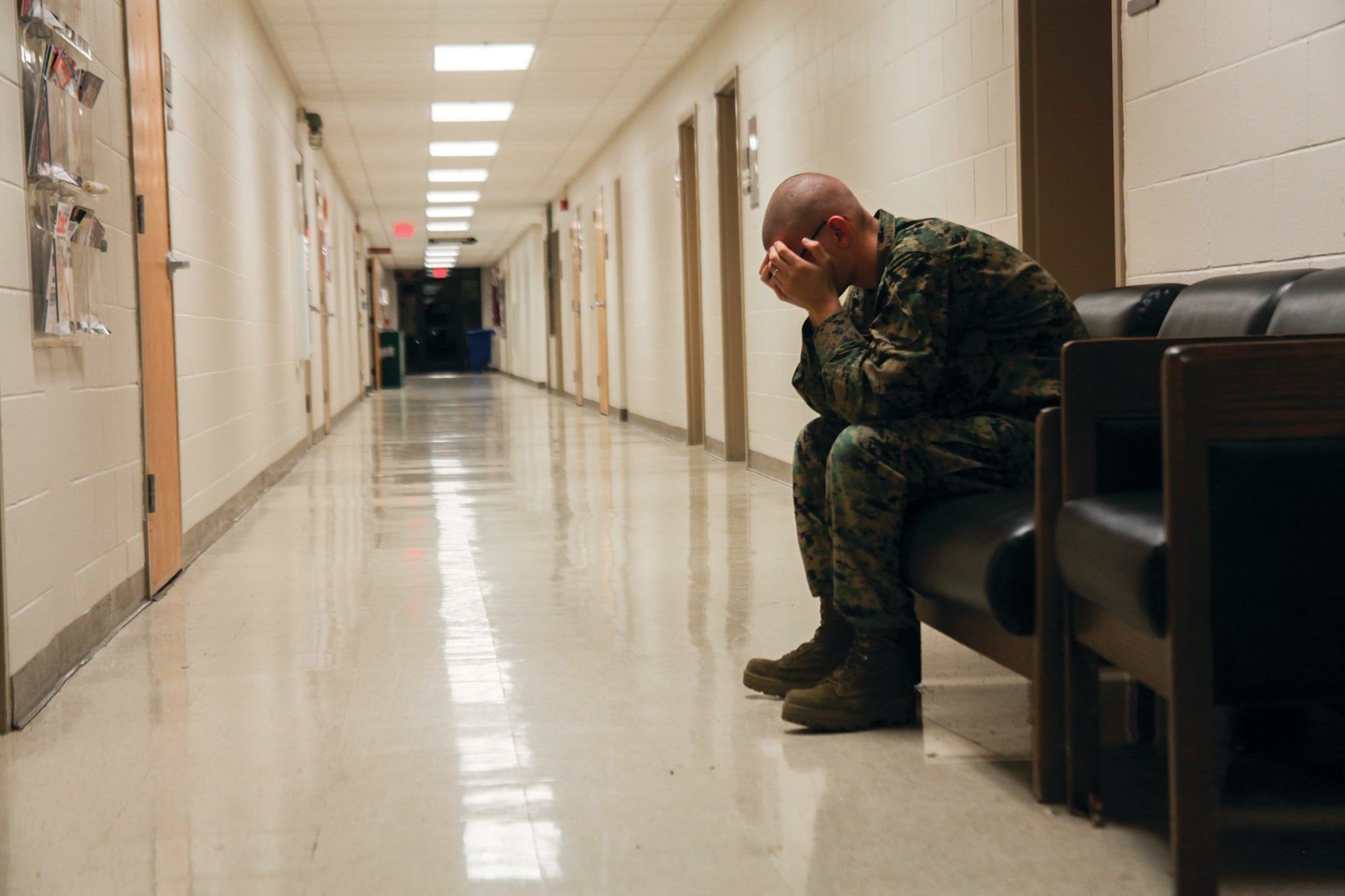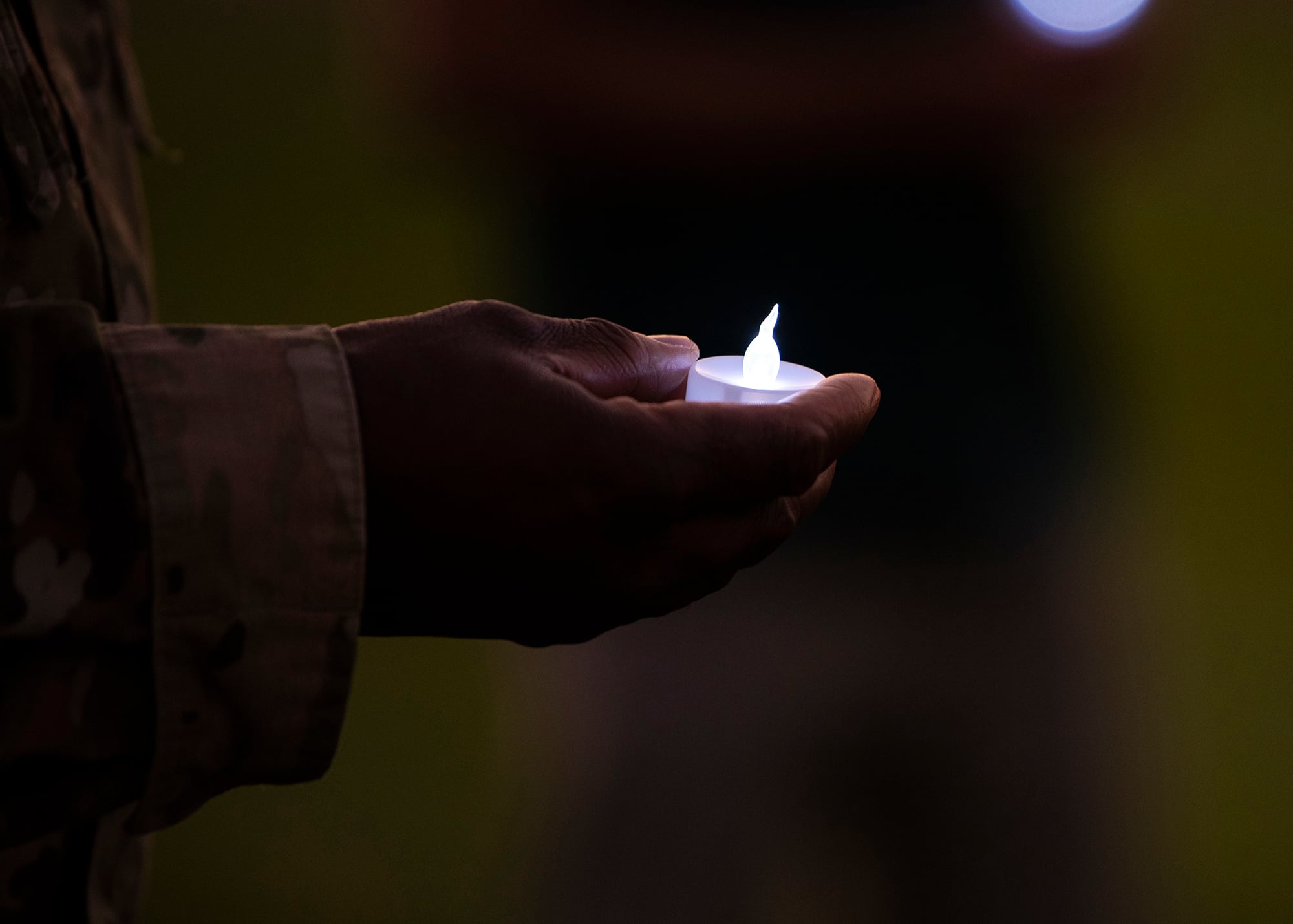On Oct. 1, 2020, the 2019 annual suicide report quietly came out. For 2019, there were 498 active duty, reserve, or National Guard members who took their own lives. While the suicide rate for active duty increased over the last year, both the reserves and national guard saw decreases.
I am an Air Force wife. My husband struggles with depression and suicidal ideation, so suicide in the military has become personal for me and my family. While the rate of suicide may be comparable to the civilian rates, civilian rates have been rising steadily since 1999. Just like the civilian rate, military rates of suicide have been rising over the years, as well. Prior to the beginning of the current wars, nearly 20 years ago, the suicide rate for the military was approximately half of what it currently is.
RELATED

There seems to be much speculation over what could have caused the suicide rate to spike and remain at higher levels: war fatigue, the reality that about 1 percent of the country shoulders the military burden for the others, monetary cuts, retention issues, and/or low morale, among many other possibilities. The reasons could differ from person to person. Regardless of why our military members are killing themselves at higher rates than years past, it is time to turn toward how to fix it.
I, like some of my peers, have a front-line vantage point that has not often been considered. Fortunately, the DoD report discusses the necessity of supporting military families in this fight. The report advocates for this through a program to increase awareness of safe storage of lethal means and to offer training about what to do if a member is facing an acute crisis. In my opinion, this is a good start but not enough.
RELATED

Spouses need a seat at the table when this problem is discussed, from the DoD level, all the way down to the squadron or platoon level. As a spouse, I see things that commands and leadership both cannot see and have frequently missed in ascertaining the appropriate way forward. As many spouses struggle with speaking about this while in the midst of trying to survive with a struggling military member, it is imperative that they know there are allies fighting for them, and in turn, these military members. It is a heartbreaking and scary situation to be in, but knowing that there is support for spouses who can then in turn support these overwhelmed and struggling members is beneficial to the service and the family.
Another aspect — and one that ties into supporting families and spouses — is reaching out to the spouse when a military member presents with serious mental health concerns. This did not occur for me. Making contact with a spouse can present an opportunity for relevant information to be shared. I recognize that this is a difficult topic. For those in a crisis, the confidentiality that they do have is vital, and this might threaten it. But as a spouse, I wanted to be brought in to understand what was happening, have someone that I could contact, or be given ways to help support my husband.
RELATED

Additionally, there needs to be increased access to counseling for military members, spouses, and families. The turnover for military members with therapists can be difficult; between member moves and provider moves and overworked clinics, consistency and availability of providers can offer protection and benefits to a member. To alleviate some of those struggles, covering off-base counseling, especially in the era of telehealth, offers advantages in the areas of consistency, moving, and offers options regardless of where a member or family is stationed.
This journey with military mental health and all of the information that I have had to learn has been hard. This suicide report reminds me of how many felt that there were no other options but to take their lives, for whatever devastating reason. I also know, firsthand, that there are many others who struggle but have not taken their lives. Furthermore, there are those who struggle and do not tell anyone because they are afraid of the stigma, career ramifications, judgments, or simply because they think they should be able to just get over it. The service is stronger when struggling people are able to successfully work through these hurdles and then turn to help others who are struggling. This is also the same for spouses, and I believe that spouses are a pivotal piece in solving this puzzle.
If you or someone you know is experiencing suicidal thoughts, please reach out to the Military Crisis Line at 1-800-273-8255, option 1.
Aleha Landry lives in Colorado with her husband and four children, and has spent the last decade as a stay-at-home mom. She has a passion for politics and policy, hates to cook (but cooks much due to aforementioned children), and loves to travel. She holds a bachelor’s of business administration from Colorado Christian University. You may reach her at aleha.landry@gmail.com.
Editor’s note: This is an Op-Ed and as such, the opinions expressed are those of the author. If you would like to respond, or have an editorial of your own you would like to submit, please contact Military Times managing editor Howard Altman, haltman@militarytimes.com.
